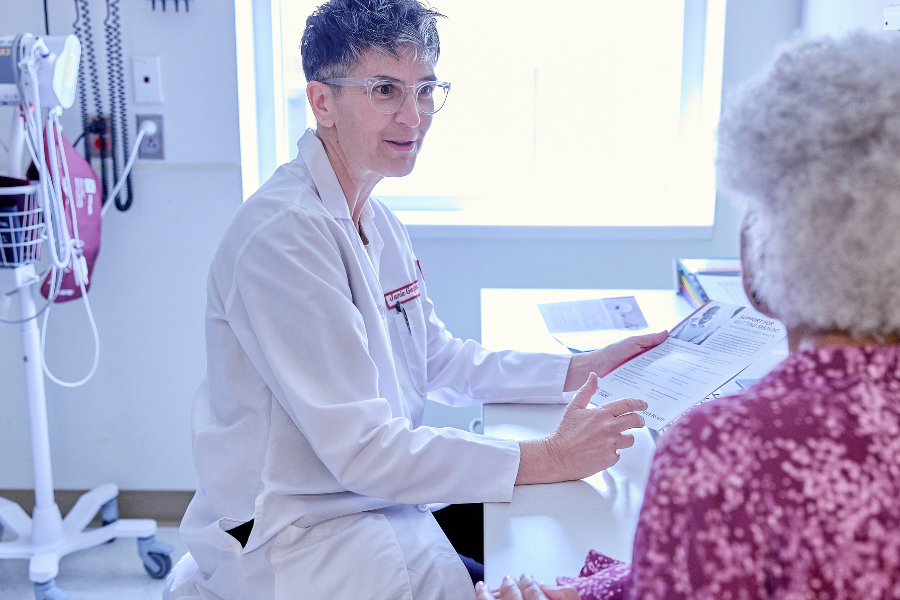Fecal transplant has been in the news recently. You may have seen articles in the New Yorker and the Washington Post covering the topic, and a quick Google search for “fecal transplant news” yields many results. Here is a quick summary of what the buzz is about:
Fecal Transplant for Treatment of Clostridium Difficile Infection
View All Blog PostsFrequently Asked Questions
Clostridium difficile is a bacterium known to cause a diarrheal illness that can sometimes be serious or life-threatening. Patients are at risk of developing C. difficile if they have recently been on antibiotics, been hospitalized, or visited a physician’s office, or if they have decreased immune function. Typical symptoms include watery diarrhea, abdominal pain, abdominal distention, and fevers. In severe cases, patients may develop a complication called toxic megacolon and may require colectomy (removal of their colon). If the illness becomes this severe, there is a high mortality rate.
We believe that one of the main risk factors for the illness is a change in the normal bacteria that live in the GI tract. When normal bacteria is disturbed by antibiotics given for another infection, it allows the C. difficile bacteria to proliferate.
Typical first and second line treatments for C. difficile are the antibiotics Flagyl (metronidazole) and Vancocin (vancomycin).
Some patients may either not respond to these medications, or have a recurrence of symptoms after they have improved. These patients may be classified as refractory patients (never got better) or recurrent patients (those that improved but then had symptoms again). With each recurrence of C. difficile, the likelihood of completely treating it is smaller. But, patients that fall into this category may be candidates for a treatment called fecal transplant.
Fecal transplant (also known as stool transplant, fecal microbiota transplant, or FMT) is a technique that aims to treat C. difficile infection by restoring normal gut bacteria to the affected patient’s GI tract. The success rate of this procedure is remarkable: over 90% in most studies. The Food and Drug Administration regards this treatment as investigational, though there are increasing numbers of centers around the country that are performing it.
There are numerous research studies around the country that are investigating the utility of fecal transplant for a variety of conditions, including irritable bowel syndrome and inflammatory bowel disease. There have been some interesting and compelling initial data. These conditions, however, can only be treated by fecal transplant in the setting of a research study. We cannot currently treat these conditions with fecal transplant at Temple University Hospital. The only indication for which fecal transplant is an option at Temple is C. difficile infection.
A patient may first see me in the office to discuss his or her history of C. difficile, prior treatments, other medical conditions, and the risks and benefits of the treatment. If the patient is deemed to be a suitable candidate, the procedure is scheduled.
Donor stool is obtained from a stool bank. At this facility, donors and their stool are tested in a similar manner to blood donation. They are screened for infectious agents such as HIV and Hepatitis C. The stool bank processes the stool and provides it to Temple frozen and ready for use.
Fecal transplant is performed by colonoscopy. Patients prepare for the procedure in a similar way as they would for a colonoscopy as well - by having only clear liquids on the day prior to the procedure and drinking a laxative preparation. During the colonoscopy, the donor stool is infused into the GI tract.
After the procedure, patients remain lying down for one hour. Patients may be given an anti-diarrheal agent to help retain the donor stool for longer. After this observational hour, patients are discharged home. Although response times vary, typically patients start to improve within one to three days. We ask patients to return for a follow-up appointment one month later.
There are numerous research studies around the country that are investigating the utility of fecal transplant for a variety of conditions, including irritable bowel syndrome and inflammatory bowel disease. There have been some interesting and compelling initial data. These conditions, however, can only be treated by fecal transplant in the setting of a research study. We cannot currently treat these conditions with fecal transplant at Temple University Hospital. The only indication for which fecal transplant is an option at Temple is C. difficile infection.
If you - or your doctor - think you could be a candidate for fecal transplant treatment, please contact Dr. Adam Ehrlich at 1-800-TEMPLE-MED (1-800-836-7536).
The information on this Site is for informational purposes only and is not intended to be, or a substitute for, legal or medical professional help, advice, diagnosis or treatment; nor can we attest to how secure your private health information is when using any app. Always seek the advice of an attorney for legal advice and your physician or other qualified health care provider with any questions that you have regarding your medical care. When using any app to store your private health information, you should investigate how secure your information will be before using it. For more information, see our Terms of Use.
Adam C. Ehrlich, MD
Adam C. Ehrlich, MD joined the Temple Digestive Disease Center medical team in 2014 and specializes in inflammatory bowel disease, Crohn's disease and ulcerative colitis. Dr. Ehrlich's research has appeared in the peer-reviewed journals Inflammatory Bowel Diseases, Journal of Clinical Gastroenterology and International Journal of Obesity. He has presented numerous posters and abstracts at the annual meetings of the American College of Gastroenterology and Digestive Disease Week, and is also a member of the American College of Gastroenterology, American Gastroenterological Association, and Crohn's and Colitis Foundation of America.

